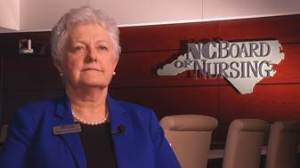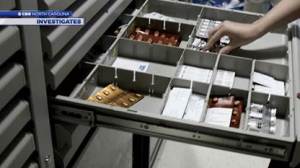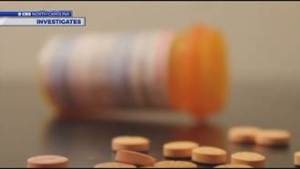This post was originally published on this site
RALEIGH, N.C. (WNCN) – We call them nurses, medics, and caretakers. And sometimes it’s easy to forget they are just like anyone else.
“I don’t like the term ‘diverting’ drugs. That’s a nice word that people use to dress up what we do. What I like to say is the truth. I stole drugs,” a nurse told CBS North Carolina Investigates anonymously.

North Carolina has more than 140,000 licensed nurses.
Kathleen Privette runs regulatory compliance for the North Carolina Board of Nursing.
“The disease doesn’t define the nurse and we look at substance use disorder as a disease,” said Privette
It’s like internal affairs for nurses.
Her job is to make sure people who sign “RN” are fit to do so.
“We are legislatively mandated to make sure that people that practice the profession are safe and confident in what they do,” Privette said.
 Kathleen Privette
Kathleen Privette
CBS North Carolina Investigates pulled the numbers for the last six years in the state and found there have been more than 2,300 drug-related complaints against licensed nurses.
And almost 400 of them, in that same time period, lost their license because of it.
“I falsified medical records. I never thought I’d do that,” the nurse said.
“Most of the nurses that come to our attention have been in practice for 10 years so you’re talking about a lot of experience, and many of them are the top nurses, the highest performers on their unit,” said Privette.
The nurse, who CBS North Carolina is not naming, lived it.
“I never thought morally that I would do anything to harm a patient. I didn’t think I was hurting anybody. I thought I was only hurting myself. It happened so quickly, and so insidiously, and it took hold and it drove me to the ground,” the nurse said.

The nurse has been in the profession for nearly 34 years.
But her career nearly flat-lined because of her addiction to prescription drugs.
With her job, there was no shortage of temptation.
“I believe with all of my heart that this is a disease. One day I just got this weird idea, ‘Why am I throwing this good stuff away?’ And that was the start of it,” she said.
“There’s a lot more prescription medication in our culture then what there have been 10 years ago and as a result we have a huge problem nationally,” said Privette.
The unnamed nurse said she never used at work, but her priorities were not her patients.
“I was very distracted from nursing care, because my main focus was to steal as much as I could,” she said.
Her addiction quickly grew out of control, costing her job, her nursing license and almost her life.
“I stock piled the prescription drugs that I had and I made a very serious suicide attempt,” she said.
But in North Carolina, nurses can get a second chance.
“If you have a problem, we have a program,” Privette said. “This is not about saving your license – this is about saving your life and your health.”
The state’s Alternative Program is for minor violations.
It is a voluntary alternative to traditional discipline action for a nurse whose competency may be impaired because of a substance use disorder. The Alternative Program takes a nurse out of the workforce until they can get the treatment they need.
“The stakes are high for the board, stakes are high for any employer who wishes to employ them because the employer has to agree to work with the board as well,” said Privette.

The Chemical Dependency Discipline Program is for a nurse whose competency may be impaired because of the use of drugs and/or alcohol and is not eligible for the Alternative Program.
It’s a lot more demanding than the Alternative Program.
“They have to be because they are protecting the public from people like me,” the nurse said. “And if I want the privilege to be able to take care of another human being, I have to prove that I’m safe,” the nurse said.
In this program, the nurse’s license is immediately suspended but the board will help them find a treatment program.
If they successfully complete the program, it is a gradual process back to work. They will undergo constant drug testing and supervised monitoring for three to five years.
“People that are suffering from addiction are human beings as well, all of the licensees have worked hard to get their license, and because this is a brain disorder, a disease, we believe they ought to have a shot at getting back into recovery and retain their license and back into practice again,” Privette said.
After three years, the nurse we spoke to was able to get her license back, and more importantly her identity.
‘I was a nurse again and I could sign ‘RN,’” the nurse said. “That just meant so much to me.”
You can verify a nurse’s license or find how to file complaint here.
You can learn more about the programs for nurses here.
